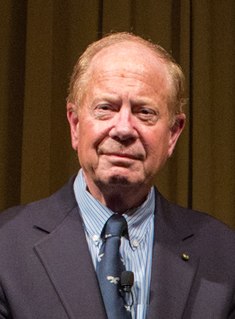A Quote by Charles Sanders Peirce
A true proposition is a proposition belief which would never lead to such disappointment so long as the proposition is not understood otherwise than it was intended.
Quote Topics
Related Quotes
It is more important that a proposition be interesting than that it be true. This statement is almost a tautology. For the energy of operation of a proposition in an occasion of experience is its interest and is its importance. But of course a true proposition is more apt to be interesting than a false one.
Pure mathematics consists entirely of assertions to the effect that, if such and such a proposition is true of anything, then suchand such another proposition is true of that thing.... Thus mathematics may be defined as the subject in which we never know what we are talking about, nor whether what we are saying is true.
To make our position clearer, we may formulate it in another way. Let us call a proposition which records an actual or possible observation an experiential proposition. Then we may say that it is the mark of a genuine factual proposition, not that it should be equivalent to an experiential proposition, or any finite number of experiential propositions, but simply that some experiential propositions can be deduced from it in conjunction with certain other premises without being deducible from those other premises alone.
About Thomas Hobbes: He was 40 years old before he looked on geometry; which happened accidentally. Being in a gentleman's library, Euclid's Elements lay open, and "twas the 47 El. libri I" [Pythagoras' Theorem]. He read the proposition "By God", sayd he, "this is impossible:" So he reads the demonstration of it, which referred him back to such a proposition; which proposition he read. That referred him back to another, which he also read. Et sic deinceps, that at last he was demonstratively convinced of that truth. This made him in love with geometry.







































